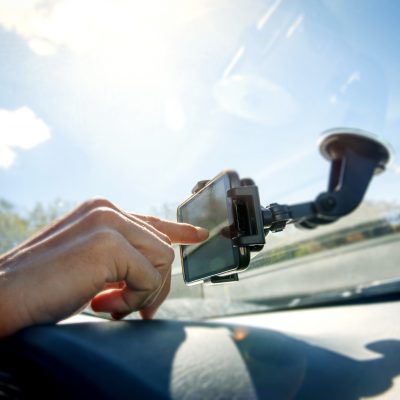The 3 best traffic apps for your summer road trip


In September 2022 Xplornet became Xplore. Read more here.
Summertime is vacation time. When planning your trip to the coast, the parks, or a cottage by the lake the last thing you’re looking forward to is spending more time in your car than necessary. Some of us might get stuck in traffic during your daily commute, others just on our way to a summer vacation. Either way, we probably all agree that there are better ways to spend our time and with a little help from the best traffic apps you get to spend it where you want to.
Our number one traffic app: Waze
Waze makes it at the top of this list for a number of things it does exceptionally well: It delivers reliable driving instructions based on up-to-date traffic data, it allows other Waze users to share valuable info—like pointing out speed controls or other traffic instances—, plus its gamified interface rewards passengers when adding data. The social traffic app also integrates with your smartphone calendar, can pull information from there, and alert you when to leave to arrive in time for your next scheduled appointment. Its biggest strength also leads us right to its downside: Being reliant so heavily on the input of its users makes Waze less useful for drivers in areas that might not be as frequently traveled like Vancouver or Toronto.
Our number two traffic app: Google Maps
As one of the most popular apps for navigation Google Maps does deserve its spot on our list as well. One of the great advantages of this app is that it not only provides routes and updates for car traffic but also cycling routes, public transport routes, and walkways. It also ties in with Google Street View which can come in handy! On top of that, Google acquired Waze in 2017 and has since carried over a number of great functions—except the premium Waze features–from our number one traffic app.
Our number three traffic app: CoPilot
Copilot is tailored to car drivers’, truck drivers’, and RV drivers’ needs. It doesn’t require a live data connection for you to use it and it lets you download a huge amount of maps and travel directions right onto your phone which is fantastic if you are traveling across borders and want to avoid extra data charges. The only downside to CoPilot is that it comes with a price tag for both iPhones and Android phones.
So, which app will get you where you want to go faster?
That depends where you want to go and on your choice of vehicle. Waze’s capability of finding alternate routes around accidents, construction sites, and traffic jams make it unbeatable to navigate in and around bigger cities with your car. If you are looking for bike paths or public transport alternatives, Google Maps would be our pick and for traveling abroad or taking a road trip through the beautiful, less trafficked Canadian countryside CoPilot gets the job done best.


